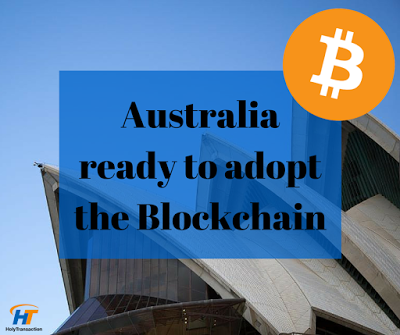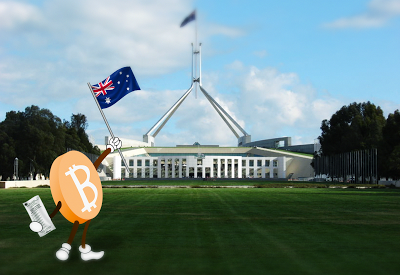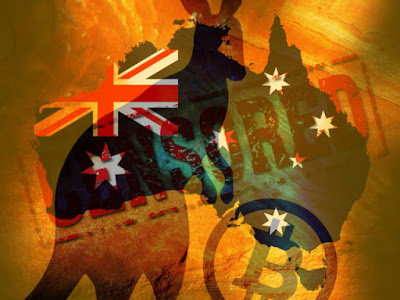
Open your free digital wallet here to store your cryptocurrencies in a safe place.

Flux Party is a new Australian political party that wants to renovate the voting system by using the blockchain.
Open your free digital wallet here to store your cryptocurrencies in a safe place.
Thank you for reading our newsletter with the previous month’s best Bitcoin articles!
We tweet more cryptocurrency news and insights daily @HolyTransaction
Open your free digital wallet here to store your cryptocurrencies in a safe place.

 Australian authorities are looking into the bank account closures of several Bitcoin companies over the last few years. Specifically, the investigation is looking at anti-competitive behavior. Over the last year, bank actions have increasingly embraced blockchain technology instead of shunning it in the form of bank account closures. Though this type of account closure, for simply being associated with Bitcoin, is a common occurence in the United States, China, and some European countries as well, the Australian authorities are the first to look into at scale – a harrowing victory for those using blockchain technology. The Australia Competition and Consumer Commission (ACCC) chairman, Rod Sims, told the Australian Financial Review:”We are asking the banks why they acted as they did and what contact there was between them.“If ground reports from major Bitcoin companies such as BTC-e and OKCoin, that lost their accounts at the National Australia Bank, are to be believed, the contact was sparse and uninformative. Sims confirmed that the investigation had been ongoing for some time. Australian Senator Matthew Canavan also commented on the investigation:
Australian authorities are looking into the bank account closures of several Bitcoin companies over the last few years. Specifically, the investigation is looking at anti-competitive behavior. Over the last year, bank actions have increasingly embraced blockchain technology instead of shunning it in the form of bank account closures. Though this type of account closure, for simply being associated with Bitcoin, is a common occurence in the United States, China, and some European countries as well, the Australian authorities are the first to look into at scale – a harrowing victory for those using blockchain technology. The Australia Competition and Consumer Commission (ACCC) chairman, Rod Sims, told the Australian Financial Review:”We are asking the banks why they acted as they did and what contact there was between them.“If ground reports from major Bitcoin companies such as BTC-e and OKCoin, that lost their accounts at the National Australia Bank, are to be believed, the contact was sparse and uninformative. Sims confirmed that the investigation had been ongoing for some time. Australian Senator Matthew Canavan also commented on the investigation:
“We have strong laws against one business obstructing another business competing against it. These laws are even tougher for those companies that have the privileged position of a significant market share. Our banks wield great influence in the market and they have a great responsibility under our laws to not misuse that position. I am not sure if that has happened in this instance but there is no doubt that digital currencies do pose a threat to business of banks.”
Australian Senate that Might Actually Understand Bitcoin and its Promise
A Labor Party Senator, Sam Dastyari, was not surprised to hear about the ACCC investigation. He had previously chaired the Senate investigation into digital currencies. At this time, banks such as the National Australia Bank and other similarly sized institutions around the world are delving into blockchain technology. If anything, this is a clear indication that the swift actions of last year, where both domestic and international Bitcoin companies lost their accounts at Australian banks, were anti-competitive in spirit. Even without the emerging facts regarding bank’s research, investment, and involvement with blockchain projects, the majority of domestic companies brought down by Australian bank action were providing services that were in essence competing with banks.Australia has a large immigrant population from South East Asia that sends remittances back home. Some of the largest Bitcoin remittance companies are based in South East Asia in countries like the Phillipines or India. In Indonesia, Bitcoin is buyable at any of ten thousand plus IndoMaret stores. Australia now seems aptly prepared to benefit from the coming Bitcoin technology boom (bubble as called by some). Once the investigation is over, and banks are 100% clear on what not to do to Bitcoin companies, expect to see more Bitcoin companies return to Australia.
Open your free digital wallet here to store your cryptocurrencies in a safe place.
Open your free digital wallet here to store your cryptocurrencies in a safe place.
Open your free digital wallet here to store your cryptocurrencies in a safe place.